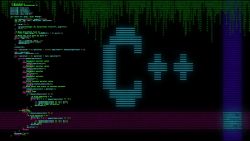
Learn Prime Number Program in C++
Prime numbers play a significant role in many areas of computer science, including cryptography, coding theory, and algorithms for efficient integer factorization and primality testing. Efficient algorithms for finding prime numbers are also an important area of research in computer science. In this article, you will learn everything about the prime number program in C++ with an example.
What Are Prime Numbers?
A prime number is a positive integer greater than 1 that is only divisible by 1 and itself. Prime numbers play a crucial role in several areas of mathematics, cryptography, and computer science.
Why Are Prime Numbers Important in Programming?
One important use of prime numbers in computer science is in the field of cryptography. Prime numbers are used to generate secure keys for encrypting and decrypting messages. For example, the widely-used RSA encryption algorithm uses two large prime numbers to generate a public key and a private key. The public key is used to encrypt messages, while the private key is used to decrypt them.
Another use of prime numbers in computer science is in the field of coding theory. Error-correcting codes are used to detect and correct errors that may occur during the transmission of data. Prime numbers are used to construct certain types of error-correcting codes, such as Reed-Solomon codes, which have applications in digital storage and communication systems.
In addition to these specific applications, prime numbers have many important properties that make them useful in other areas of computer science. For example, prime numbers are used in algorithms for efficient integer factorization and testing for primality.
It's also worth mentioning that finding prime numbers is a non-trivial task, and efficient algorithms for finding prime numbers are a major area of research in computer science. The simplest algorithm for finding prime numbers is trial division, which involves checking if a number is divisible by all the integers less than itself. However, this method is not efficient for finding large prime numbers, and more advanced algorithms, such as the Miller-Rabin primality test, have been developed to address this problem. Here are C++ Tutorials In Hindi.
Prime Number Program in C++ that checks whether a given number is a prime number or not:
The program starts by including the iostream library and defining the namespace as std. Then, the is_prime function takes an integer as an argument and returns a bool value that indicates whether the number is prime or not.
The is_prime function starts by checking if the given number n is less than or equal to 1. If it is, the function returns false, as 1 and numbers less than 1 are not prime numbers.
Next, the function uses a for loop to iterate over the numbers from 2 to n - 1. For each number, the function checks if n is divisible by that number. If it is, the function returns false, as n is not a prime number.
Finally, if the for loop completes without finding a divisor, the function returns true, indicating that the number is prime.
In the main function, the program takes an integer input from the user and passes it to the is_prime function. Based on the return value of the function, the program outputs whether the number is a prime number or not. Learn all about Member Function in C++.




















